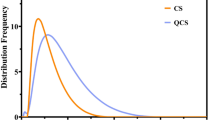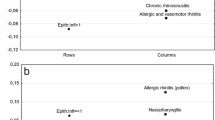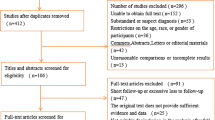Abstract
Allergic rhinitis (AR) is an extremely common health problem affecting 20 to 40 million Americans and between 10–25% of the world's population. Patients with AR suffer from both nasal symptoms (congestion, rhinorrhea, itching, and sneezing) and ocular symptoms (itching, redness, and tearing). The negative impact on sleep quality and quantity, and consequently on various aspects of the patient's life, is an under-recognised and under-treated component of AR morbidity. Nasal congestion, which is one of the most bothersome and prevalent symptoms of AR, is thought to be the leading symptom responsible for rhinitis-related sleep problems.
In addition to reducing clinical symptoms, pharmacologic therapies for AR that specifically reduce inflammatory cells and mediators — and therefore nasal congestion and other symptoms — should also improve sleep quality and overall quality of life (QOL). Intranasal corticosteroids (INS) are the current mainstay of therapy for AR. Results of a number of clinical trials demonstrate that INS effectively reduce nasal congestion and ocular symptoms, improve sleep quality, and decrease daytime somnolence. Intranasal corticosteroids have also proved to be effective in reducing symptoms of acute rhinosinusitis and nasal polyposis, both of which also negatively impact on sleep quality. Intranasal corticosteroids are considered safe due to their low systemic bioavailability.
Similar content being viewed by others
Article PDF
Author information
Authors and Affiliations
Corresponding author
Rights and permissions
About this article
Cite this article
Storms, W. Allergic rhinitis-induced nasal congestion: its impact on sleep quality. Prim Care Respir J 17, 18–12 (2008). https://doi.org/10.3132/pcrj.2008.00001
Received:
Accepted:
Published:
Issue date:
DOI: https://doi.org/10.3132/pcrj.2008.00001
This article is cited by
-
An Observational Study to Determine the Real-Life Effectiveness of MP-AzeFlu® in Austrian Patients with Persistent Allergic Rhinitis
Drugs - Real World Outcomes (2024)
-
Effect of second-generation antihistamines on nighttime sleep and daytime sleepiness in patients with allergic rhinitis
Sleep and Breathing (2023)
-
Impact of antiallergy agents on CPAP therapy and sleep quality with spring pollinosis in Japanese
Sleep and Breathing (2023)
-
Allergic rhinitis and asthma symptoms in a real-life study of MP-AzeFlu to treat multimorbid allergic rhinitis and asthma
Clinical and Molecular Allergy (2020)
-
Objective and Subjective Effects of a Prototype Nasal Dilator Strip on Sleep in Subjects with Chronic Nocturnal Nasal Congestion
Advances in Therapy (2019)



